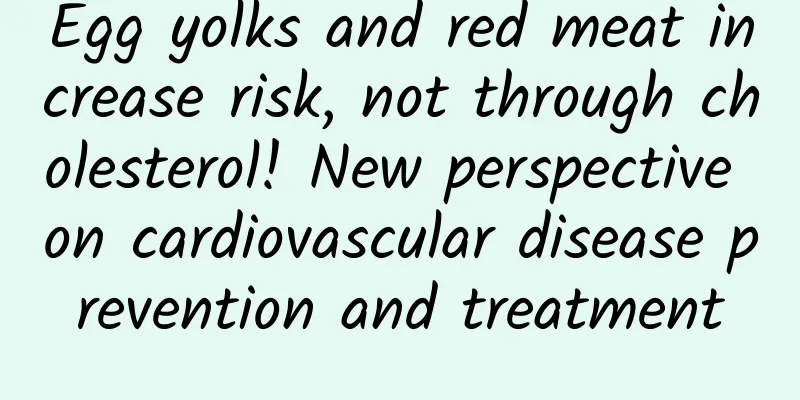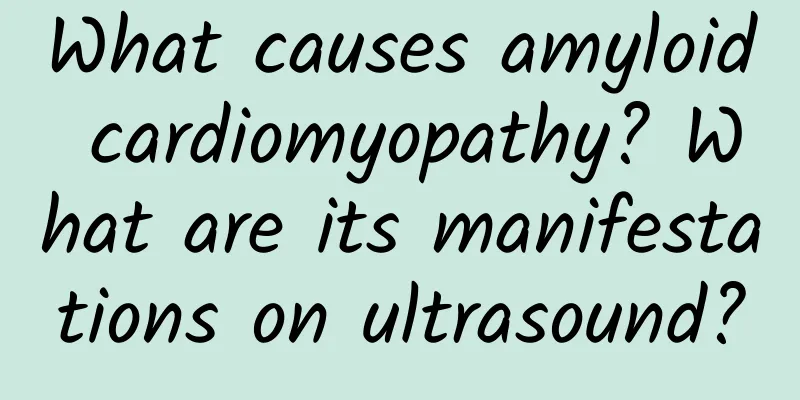Egg yolks and red meat increase risk, not through cholesterol! New perspective on cardiovascular disease prevention and treatment

|
There has always been controversy over whether eggs and red meat have an impact on health. In the past, people mainly believed that egg yolks are high in cholesterol and red meat contains high cholesterol and saturated fat, which are harmful to health. On March 15, Canadian scholars published an opinion article in the Journal of the American Heart Association, pointing out that the reason why egg yolks and meat increase cardiovascular risk is that they promote intestinal flora to produce trimethylamine oxide (TMAO) and other substances that affect health. The authors pointed out that some previous studies have shown that eggs and red meat are harmless or even beneficial, which may be related to the fact that the subjects included were younger and at lower risk, and there may also be confounding factors such as smoking and socioeconomic status. Cholesterol and saturated fat are in cahoots The author believes that in most cases, eggs and meat will not raise blood cholesterol too much. However, cholesterol in the diet will significantly increase the impact of saturated fat on blood lipids. Red meat often contains both cholesterol and saturated fat. In the United States, bacon is often eaten with eggs, which significantly increases the level of bad cholesterol (low-density lipoprotein cholesterol, LDL-C) to much higher levels than eating eggs or bacon alone. The embarrassment of bad cholesterol We need to focus on atherosclerosis and cardiovascular disease, not just cholesterol. A study that measured carotid artery plaque burden and LDL-C in more than 4,000 people serially found that neither baseline LDL-C nor changes in LDL-C predicted plaque progression, stability, or regression, whereas age and serum creatinine did predict plaque progression. The authors believe that elevated LDL-C is not a reliable predictor of cardiovascular disease because most cardiovascular events occur in people with average risk levels, who may be incorrectly classified as low or intermediate risk if their risk factor scores are low. For example, the Chinese Acute Myocardial Infarction Registry (2013-2014) found that the LDL-C of patients with myocardial infarction was 2.83 mmol/L, which was only slightly higher than the 2.68 mmol/L of the general population in 2007-2008. It was similar to the LDL-C of the general population in the 2015 CANCDS project (2.87 mmol/L). Postprandial effects caused by diet The authors suggest that the effects of diet on fasting risk factor levels may not be important for actual cardiovascular risk, and that the increased cardiovascular risk associated with eating red meat and egg yolks may be primarily attributable to their postprandial effects. Studies have found that within approximately 4 hours after a high-fat/high-cholesterol meal, LDL-C oxidation, endothelial dysfunction, and arterial inflammation increase significantly. The authors speculate that the relationship between impaired renal function and atherosclerosis may be mainly mediated by toxic metabolites produced by gut microbes that are excreted through the kidneys. Over the years, there have been many studies showing that dietary cholesterol induces atherosclerosis in animal models and is also associated with increased coronary artery disease in humans. Toxic metabolites of intestinal flora are the culprit Previous studies have shown that TMAO can lead to atherosclerosis, and people with high TMAO levels have a significantly increased risk of stroke, myocardial infarction, and vascular death. The two major substrates responsible for the production of TMAO are carnitine and phosphatidylcholine, the former mainly comes from red meat, and the latter is rich in egg yolk. The carnitine content of red meat is about 4 times that of white meat. In addition, in patients with severe carotid atherosclerosis but no traditional risk factors, toxic metabolites of the gut microbiota, including TMAO and p-cresol sulfate, were significantly higher than in patients with more risk factors but little or no carotid plaque. This difference was independent of renal function and diet, suggesting an association with the gut microbiota. Other toxic metabolites of the intestinal flora, such as p-cresol sulfate and hippuric acid, are produced from amino acids, so eating meat will increase their plasma levels, especially when kidney function is reduced, which is common in the elderly. Therefore, egg yolks and meat are particularly harmful to people with impaired kidney function, including the elderly. If your kidney function is not good, you should eat less red meat and egg yolks The authors believe that in order to prevent cardiovascular disease and stroke, egg yolks and red meat should be avoided, and the intake of other meats should also be limited. Since TMAO is excreted through the kidneys, people with impaired kidney function should be more cautious about eating red meat and egg yolks, especially the elderly. In addition, including more plant-based foods in the diet reduces the health risks of meat-based foods. source: [1] Cardiovascular Harm From Egg Yolk and Meat: MoreThan Just Cholesterol and Saturated Fat. Journal of the American HeartAssociation, 15 Mar 2021 [2] Wu Naqiong, Gao Zhan, Li Wei, et al. Analysis of age and gender distribution characteristics of dyslipidemia in Chinese patients with first-onset acute myocardial infarction. Chinese Journal of Circulation, 2020, 35: 739-743.DOI:10.3969/j.issn.1000-3614.2020.08.002 [3] Zhang Yanan, Yu Xue. Predictive effect of plasma trimethylamine oxide level on the prognosis of patients with coronary heart disease: a dose-response meta-analysis. Chinese Journal of Circulation, 2021, 36: 149-155. DOI:10.3969/j.issn.1000-3614.2021.02.007 [Scan the QR code below to get the full text] Reprint: Please indicate "China Circulation Magazine" |
<<: Eating sugar can easily lead to fatty liver! Swiss research
Recommend
Anal pain in late pregnancy
Once a woman enters the late stage of pregnancy, ...
What are the effects on a woman's body after hysterectomy?
For women, the uterus is a vital organ. It is the...
Wisdom tooth inflammation and pain during lactation
Breastfeeding is the most difficult time for moth...
What to do if your breasts sag after giving birth?
Most female friends will lose their figure after ...
What are the symptoms of a fungal nipple infection?
A yeast infection is a scary thing. The general t...
What is the reason for a little red vaginal discharge during pregnancy?
During pregnancy, the leucorrhea discharged from ...
Why does the red swordfish always have mouth rot? How to treat the red swordfish with mouth rot?
As people's quality of life improves, more an...
Strong sexual desire in late pregnancy
In the late stages of pregnancy, many pregnant wo...
What should I do if my mother has high blood sugar?
For family members, pregnant women are the ones w...
Girls lower body pain
Women's pain below is very common, and its ad...
What is the origin and production area of Peaches? What does Peach taste like?
Pantao is actually a kind of peach. It is very un...
[Committee member’s popular science] Tips for water control at home for patients with heart failure
In clinical practice, we often say that water con...
Underlying diseases are not a contraindication to vaccination! Why is it important for the elderly to get the new coronavirus vaccine?
On May 8, at the 328th press conference on the pr...
What to do if a woman has hydrosalpinx
Many women experience hydrosalpinx, or more corre...
Repeated spotting without labor pains in late pregnancy?
Everyone knows that when pregnant women see spott...









